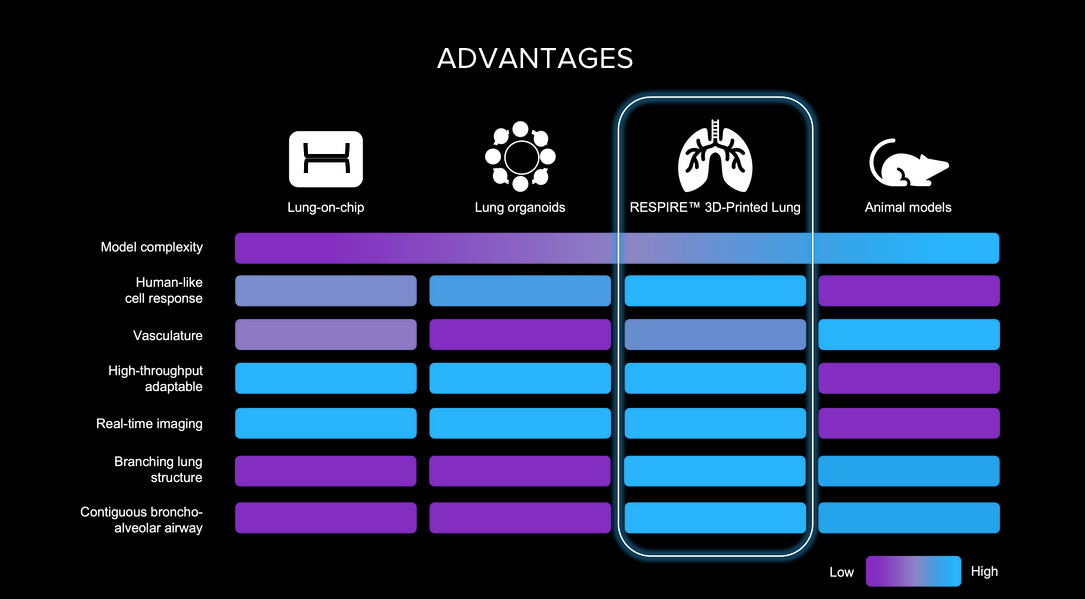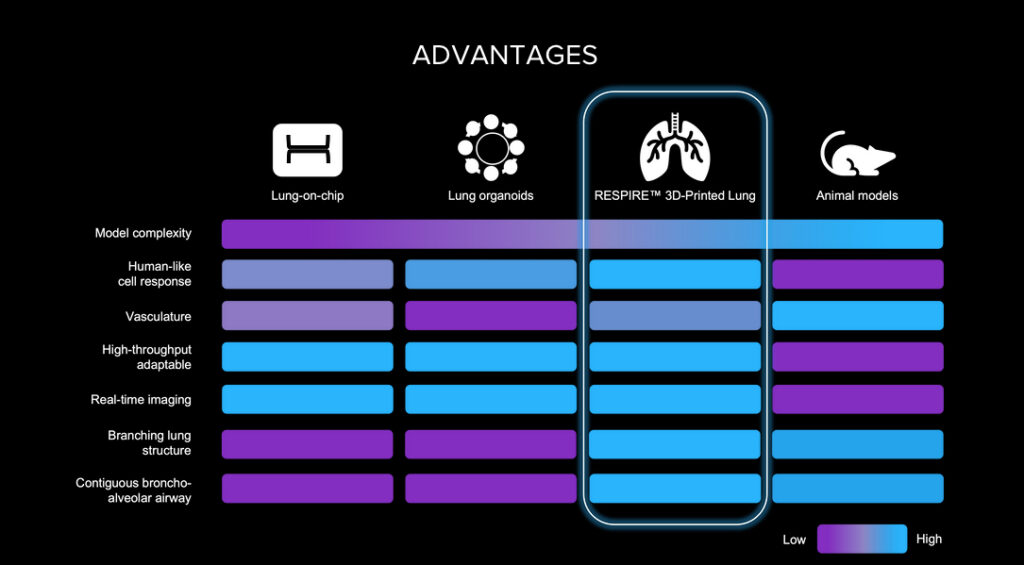
What You Should Know:
– Frontier Bio Corporation has successfully created complex microscale lung tissue by combining 3D bioprinting with the self-assembling capabilities of stem cells, mirroring the natural organ development process.
– Frontier Bio’s breakthrough in lab-grown lung tissue signifies a potential turning point in the fight against respiratory diseases and the quest for viable organ transplantation options.
Addressing the Limitations of Animal Testing
Animal testing, a common practice in preclinical drug development, often falls short in accurately representing human biology. This results in high failure rates when new drugs reach human trials. Frontier Bio’s lab-grown human lung tissue provides a more precise model for drug development, potentially increasing the success rate of clinical trials and accelerating the discovery of new treatments.
Harnessing the Power of Stem Cells
Frontier Bio’s lung models are created from a combination of lung cells, including stem cells, mixed with proprietary biomaterials. This mixture is then processed using the company’s bioprinting hardware to create the tissue’s structure. The unique aspect of Frontier Bio’s technology lies in its ability to stimulate natural self-assembly processes, allowing stem cells to differentiate and organize into the intricate microtissue architecture of the distal lung. These lab-grown models even exhibit features like bronchioles, alveolar air sacs, beating cilia, mucus, and surfactant, closely resembling natural lung tissue.
Potential Applications and Impact
The lab-grown lung models offer a valuable platform for studying diseases like lung cancer, pulmonary fibrosis, COPD, and COVID-19, paving the way for new treatments in this significant market. The technology also holds immense promise for creating tissues and organs for transplantation, addressing the critical need for replacement lung tissue for millions of patients worldwide.
“This could fundamentally change the landscape of lung transplants, giving hope to thousands of patients waiting for lifesaving treatment,” added Eric Bennett, CEO of Frontier Bio.

